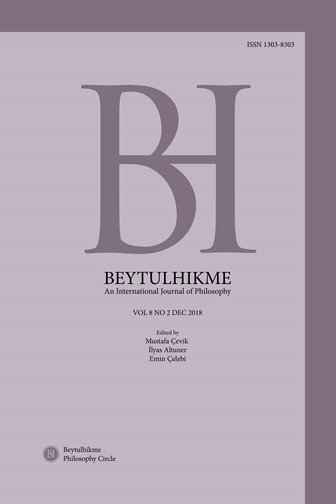Right to Universal, Plural and Secret Vote: On the Liberal and Conservative Paradoxes of Mill's 'Elitist' Democracy
Author :
Abstract
Mill temsili demokrasinin gelişmeye başladığı bir çağda “evrensel oy” hakkını savunarak hiçbir bireyin politik haklardan mahrum bırakılmaması gerektiğine inanmıştır. Bu, onun çağdaş, liberal ve demokrat tavrının bir yansıması olarak değerlendirilebilir. Ancak Mill seçmen hakkına sahip olabilmek için zorunlu birtakım ön koşulları belirleyip, bir de üstüne her seçmenin oyunun eşit derecede bir etkiye sahip olamayacağını ekleyerek, onun liberal ve demokrat tavrıyla çelişkili bir pozisyonu da paylaşmıştır. Mill’in evrensel oy hakkı karşısında getirdiği paradoksal sınırlamalar onun seçkinci bir demokrasi teorisi sunduğu şeklinde yorumlanabilir. Bu çalışmada Mill’in seçkinci demokrasi yaklaşımının temel nedenleri ayrıntılı bir şekilde tartışılıp, onun demokrasi teorisinin mahiyeti sorgulanmaya çalışılacaktır.
Keywords
Abstract
During the era witnessing the development of representative democracy, Mill defended the right to “universal suffrage” and believed that individuals should not be deprived of their political rights. This can be seen as a reflection of his modern, liberal, and democratic attitude. However, by defining certain mandatory prerequisites to have such voting right and adding that taking votes of each individual with an equal impact would be impossible, Mill also showed a contradicting position against his liberal and democratic attitude. The paradoxical limitations brought by Mill to the universal suffrage right can be interpreted as his presentation of an elitist democracy theory. In this paper, the reasons behind Mill’s elitist democracy approach are discussed in details and the nature of his theory of democracy is examined.
Keywords
- Aristotle (1971). Aristotle’s Politics. (Trans. H. Rackham). London: The Loeb Clas- sical Library.
- Bowles S. & Gintis, H. (1986). Democracy and Capitalism, Property, Community, and the Contradictions of Modern Social Thought. New York: Basic Books.
- Capaldi, N. (2004). John Stuart Mill: A Biography. Cambridge: Cambridge Univer- sity Press.
- Finley, M. I. (1973). Democracy Ancient and Modern. London: Chatto & Windus.
- Giorgini, G. (2009). Radical Plato: John Stuart Mill, George Grote and the Reviv- al of Plato in Nineteenth-Century England. History of Political Thought, 30 (4), 617-646.
- Haliday, R. J. (1976). Government Bureaucracy and Voting. Political Thinkers IV: John Stuart Mill. London: Routledge, 125-140.
- Kendall, W. & Carey G. (1968). The “Roster Device”: J. S. Mill and Contempo- rary Elitism. The Western Political Quarterly, 21 (1), 20-39.
- Kern, P. B. (1972). Universal Suffrage without Democracy: Thomas Hare and John
- 19 In Britain, even in 1886, that rate was only almost 17% of the whole population (Lipson, 2005: 131), in 1911 only could reach to 30%. For a real right to vote including only men they had to wait until 1918 (Bowles & Gintis, 1986: 43).
- Kinzer, B. L. (1978). J. S. Mill and the Secret Ballot. Historical Reflections, 5 (1), 19- 39.
- Kinzer, B. L. (1992). Parlimentary Reform and the Radicalization of the Liberal Party. A Moralist In and Out of Parliament. Toronto: University of Toronto Press, 80-112.
- Locke. J. (1988). Second Treatise of Government. Two Treatises of Government. Cambridge: Cambridge University Press, 265-428.
- Machiavelli, N. (2008). The Prince. (Trans. J. Atkinson). Cambridge: Hackett Publishing Company.
- Melleri, A (2014). Public Opinion in the Political Thought of John Stuart Mill. (MS. Thesis). Helsinki: Political and Economic Studies of Helsinki University.
- Mill, J. S. (1958). Considerations on Representative Government. New York: Forum Books.
- Mill, J. S. (1972). [Mill’s Letter] to Henry Jones Dates 13/06/1868. Collected Works of John Stuart Mill, vol. XVI. Toronto: University of Toronto Press, 1972.
- Mill, J. S. (1977). Thoughts on Parliamentary Reform. Collected Works of John Stuart Mill, vol. XIX. Toronto: University of Toronto Press.
- Mill, J. S. (2009a). On Liberty. Auckland: Floating Press.
- Mill, J. S. (2009b). The Subjection of Women. Auckland: Floating Press.
- Mill, J. S. (2009c). Utilitarianism. Auckland: Floating Press.
- Miller, J. (2003). On Plural Voting, Competence and Participation. History of Political Thought, 4 (4), 647-667.
- Lipson, L. (1964). The Democratic Civilization. New York: Oxford University Press.
- Lipson, L. (2005). The Great Issues of Politics. (Trans. F. Yavuz). İstanbul: Türkiye İş Bankası Kültür Yayınları.
- Ober, J. (2008). Democracy and Knowledge. New Jersey: Princeton University Press.
- Pennimann, H. (1958). Introduction. Considerations on Representative Government. New York: Forum Books, vii-xxiii.
- Sartori, G. (1996). The Theory of Democracy Revisited. (Trans. T. Karamustafaoğlu, M. Turhan). Ankara: Yetkin Yayınları.
- Schmidt, M. G. (2002). Introduction to the Theories of Democracy. (Trans. E. Köktaş). Ankara: Vadi Yayınları.
- Smart, P. (1990). Some Will be More Equel than Others’: J. S. Mill on Democra- cy, Freedom and Meritocracy. Archives for Philosophy of Law and Social Philosohy, 76 (3), 308-323.
- Ten, C. L. (1998). Democracy, Socialism, and the Working Classes. Cambridge Companion to Mill. (Ed. J. Skorupski). Cambridge: Cambridge University Press, 372-395.
- Warner, E. B. (2001). John Stuart Mill’s Theory of Bureaucracy within Repre- sentative Government: Balancing Competence and Participation. Public Administration Review, 61 (4), 403-413. Öz: Mill temsili demokrasinin gelişmeye başladığı bir çağda “evrensel oy” hakkını savunarak hiçbir bireyin politik haklardan mahrum bırakılmaması gerektiğine inanmıştır. Bu, onun çağdaş, liberal ve demokrat tavrının bir yansıması olarak değerlendirilebilir. Ancak Mill seçmen hakkına sahip olabilmek için zorunlu birtakım ön koşulları belirleyip, bir de üstüne her seçmenin oyunun eşit derecede bir etkiye sahip olamayacağını ekleyerek, onun liberal ve demokrat tavrıyla çelişkili bir pozisyonu da paylaşmıştır. Mill’in evrensel oy hakkı karşısında getirdiği paradoksal sınırlamalar onun seçkinci bir demokrasi teorisi sunduğu şeklinde yorumlanabilir. Bu çalışmada Mill’in seçkinci demokrasi yaklaşımının temel nedenleri ayrıntılı bir şekilde tartışılıp, onun demokrasi teorisinin mahiyeti sorgulanmaya çalışılacaktır. Anahtar Kelimeler: Mill, demokrasi, çoğul ve gizli oy, paradoks, oy hakkı, politika.





